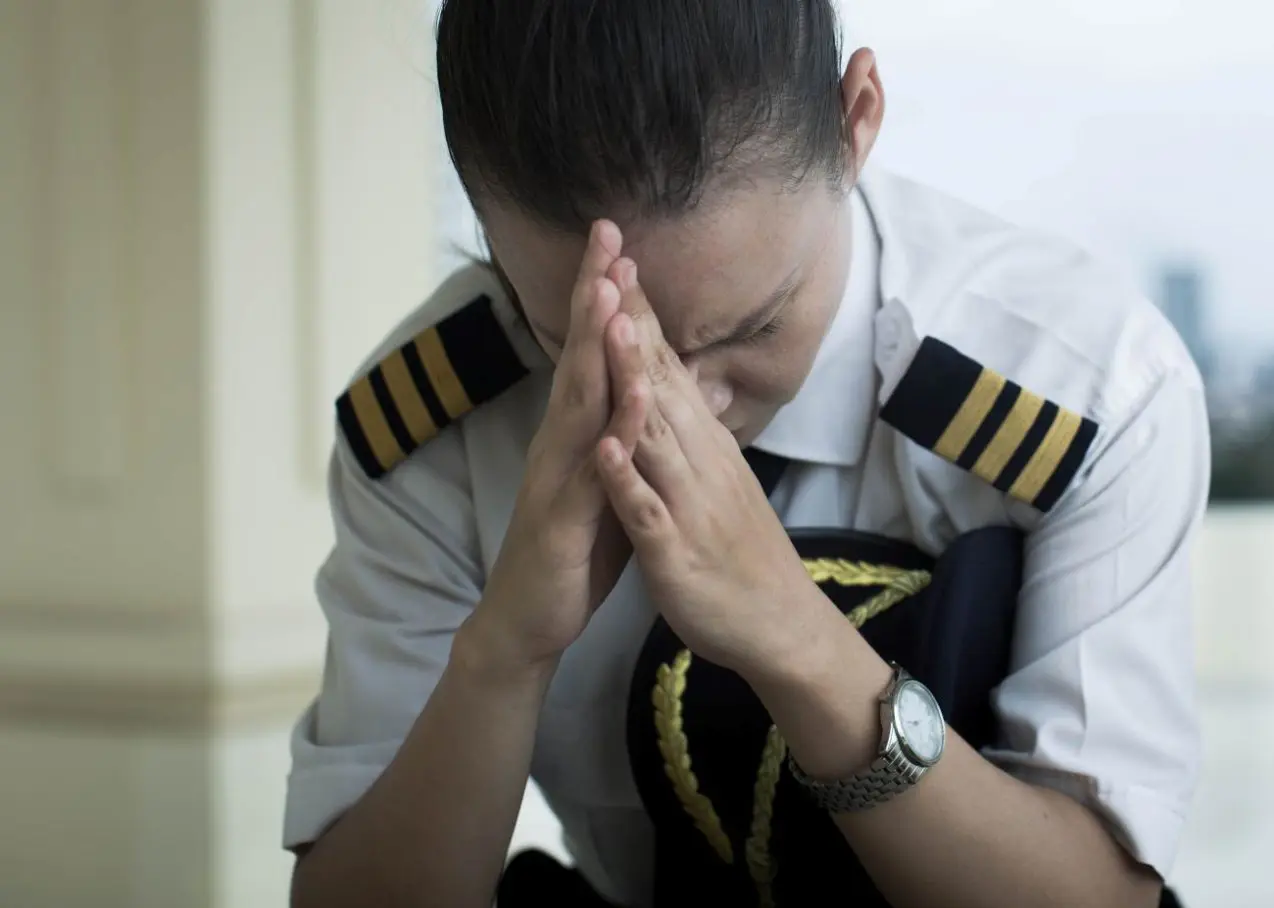The Federal Aviation Administration (FAA) is facing renewed scrutiny over its pilots' mental health policies. This comes after an off-duty Alaska Airlines captain allegedly tried to crash a commercial flight, later telling police he was depressed. The incident has reignited calls for the FAA to reform its stringent medical certification process that deters pilots from seeking mental health treatment over fears it could ground them.
Critics argue the FAA’s antiquated approach perpetuates a culture of shame and silence around pilots' mental health issues. They say the agency’s blunt messaging and threat of revoked licenses cause many to avoid treatment altogether. This raises safety concerns, given the high-stress nature of piloting commercial aircraft. The FAA asserts that it has invested in reducing stigma and promoting early treatment. However, pilots counter that in practice, disclosing depression or anxiety often leads to drawn-out, expensive evaluations and denials of medical clearance to fly.
The Alaska Airlines case is the latest high-profile example spotlighting gaps in support systems for pilots' mental health. In 2015, the Germanwings crash that killed 150 people raised questions about medical confidentiality policies after the suicidal pilot was urged to check into a psychiatric facility just weeks prior. While safeguards like two pilots in the cockpit are reassuring, critics argue much more needs to be done upstream to promote early intervention when pilots show warning signs.
Pilot unions and organizations have stepped up peer counseling programs and support resources in recent years. However, uptake remains low due to fears around privacy and career impacts. The key dilemma is that conditions like depression are exceedingly common among airline crews facing immense stressors, yet punitive consequences for seeking care persist. Reform advocates argue the FAA must shift its posture to destigmatize mental health treatment as both a moral imperative and a safety priority.
The counterargument is that aviation needs an ultra-conservative approach, given the risks inherent in commercial flying. Proponents say the system’s exceptional safety record in the U.S. validates strict protocols around pilot medical fitness, including mental health. While empathy around high-stress working conditions is warranted, they contend it cannot come at the expense of watered-down oversight that could endanger passengers and crews.
In December 2022, the NTSB chair publicly called for the FAA to reexamine its stance for the first time. She argued today’s greater understanding of mental health warrants more progressive policies emphasizing early intervention, not deterrence. Critics called this unrealistic and politically motivated. However, some medical experts counter that safe compromises accommodating both perspectives are feasible with a more scientifically grounded approach.
The proposals include replacing blanket bans with nuanced risk stratification models differentiating between conditions. For example, pilots exhibiting early, mild anxiety could follow targeted return-to-work plans, allowing flying with temporary safeguards like more oversight. In contrast, actively suicidal pilots warrant grounding and intensive treatment before any consideration of clearance. The key is scaling restrictions to reflection levels of impairment and response to care.
Additionally, external medical review boards with aerospace medicine and psychiatric expertise could independently evaluate complex cases. This would bolster objectivity around difficult clearance decisions while shielding treating doctors from perceptions of conflicts of interest. Strict confidentiality assurances enabling candid disclosures without career jeopardy would further facilitate the expert panels’ risk and fitness determinations.
Critically, FAA leaders must also foster a cultural shift, encouraging pilots to view mental health treatment as an ethical responsibility, not a liability. Messaging around strength in proactively seeking support - framed as indispensable to manage high-stake jobs safely - would reinforce normalization. Aviation unions and associations are vital in driving this message through awareness campaigns presenting the issues without stigma.
Synthesizing these strategies, an integrated, evidence-based approach promoting early intervention and graded return plans could balance mental health and air safety priorities. However, formidable political, ethical and medical hurdles remain regarding sweeping FAA reforms. With no quick fixes, sustained pressures from Congress, industry and medical groups will likely prove necessary to modernize the system.
In recent history, seminal safety advances have followed watershed tragedies, shattering old paradigms. Consequently, the hopeful view is that the Alaska Airlines case could be an inflection point catalyzing overdue improvements in better supporting pilots' mental health. The more cynical take is that entrenched bureaucracies and interests will stifle meaningful changes without further crises underscoring an intolerable status quo.
https://www.lapost.com/pilots-let-passengers-in-on-industrys-biggest-flight-delay-deception/
Either way, one certainty is that more pilots will continue quietly struggling with few good options unless reform momentum gains steam. For affected flight crews facing career-altering dilemmas daily, progress cannot come soon enough. However, transforming decades-old institutional norms could take years of concerted efforts before cultural taboos and regulatory barriers to pilots getting mental health assistance are dismantled.

 Trump has begun another trade war. Here's a timeline of how we got here
Trump has begun another trade war. Here's a timeline of how we got here
 Canada's leader laments lost friendship with US in town that sheltered stranded Americans after 9/11
Canada's leader laments lost friendship with US in town that sheltered stranded Americans after 9/11
 Chinese EV giant BYD's fourth-quarter profit leaps 73%
Chinese EV giant BYD's fourth-quarter profit leaps 73%
 You're an American in another land? Prepare to talk about the why and how of Trump 2.0
You're an American in another land? Prepare to talk about the why and how of Trump 2.0
 Chalk talk: Star power, top teams and No. 5 seeds headline the women's March Madness Sweet 16
Chalk talk: Star power, top teams and No. 5 seeds headline the women's March Madness Sweet 16
 Purdue returns to Sweet 16 with 76-62 win over McNeese in March Madness
Purdue returns to Sweet 16 with 76-62 win over McNeese in March Madness








